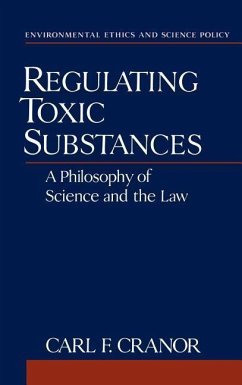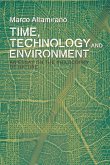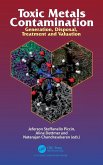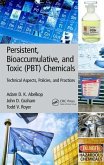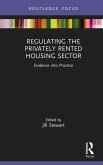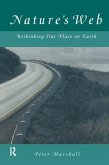This book in the philosophy of law and risk assessment is concerned with the topic is standards of evidence in legal proceedings and regulatory decisions about the toxicity of chemicals. Cranor argues that the scientific and statistical criteria usually used to determine whether substances are toxic are too rigorous and time-consuming for evidentiary purposes in tort cases and for regulation. The result is the under-regulation of toxic substances and the under-compensation of plaintiffs in tort cases. Cranor proposes the evidential standards now used should be evaluated with the purposes of the law in mind.
The proliferation of chemical substances in commerce poses significant scientific and philosophical problems. The scientific challenge is to develop data, methodologies and techniques for identifying and assessing toxic substances before they cause harm to human beings or the environment. The philosophical problem is to determine how much scientific information we should demand for this task consistent with the pursuit of other social goals. In this book, Carl Cranor utilizes material from ethics, philosophy of law, epidemiology, tort law, regulatory law, and risk assessment to argue that the evidentiary standards for science used in the law to control toxics ought to be evaluated with the purposes of the law in mind. Demanding too much for this purpose will slow the evaluation and lead to an excess of toxic substances left unidentified and unassessed, thus leaving the public at risk. Demanding too little may impose other costs. Analyzing this tension philosophically, Cranor argues for an appropriate balance between these social concerns. Although the use of somewhat less stringent evidentiary standards for expert testimony in tort law cases and the use of expedited procedures in the regulatory field might in some cases lead to mistakes of overcompensation or overregulation, the overall social costs would be less than the alternatives. Justice requires that we tolerate the chance of such errors and that we resist the temptation to demand the most science intensive evaluation of each substance in order to protect individuals better from mistakes of undercompensation and underregulation. The role of science in the control of toxic substances is an important public philosophical issue, yetuntil now has received little discussion by philosophers. Regulating Toxic Substances addresses this subject in a way that speaks both to a well-informed public and to experts in several disciplines, including philosophy, risk assessment, environmental and tort law, environmental studies, and public health policy.
Hinweis: Dieser Artikel kann nur an eine deutsche Lieferadresse ausgeliefert werden.
The proliferation of chemical substances in commerce poses significant scientific and philosophical problems. The scientific challenge is to develop data, methodologies and techniques for identifying and assessing toxic substances before they cause harm to human beings or the environment. The philosophical problem is to determine how much scientific information we should demand for this task consistent with the pursuit of other social goals. In this book, Carl Cranor utilizes material from ethics, philosophy of law, epidemiology, tort law, regulatory law, and risk assessment to argue that the evidentiary standards for science used in the law to control toxics ought to be evaluated with the purposes of the law in mind. Demanding too much for this purpose will slow the evaluation and lead to an excess of toxic substances left unidentified and unassessed, thus leaving the public at risk. Demanding too little may impose other costs. Analyzing this tension philosophically, Cranor argues for an appropriate balance between these social concerns. Although the use of somewhat less stringent evidentiary standards for expert testimony in tort law cases and the use of expedited procedures in the regulatory field might in some cases lead to mistakes of overcompensation or overregulation, the overall social costs would be less than the alternatives. Justice requires that we tolerate the chance of such errors and that we resist the temptation to demand the most science intensive evaluation of each substance in order to protect individuals better from mistakes of undercompensation and underregulation. The role of science in the control of toxic substances is an important public philosophical issue, yetuntil now has received little discussion by philosophers. Regulating Toxic Substances addresses this subject in a way that speaks both to a well-informed public and to experts in several disciplines, including philosophy, risk assessment, environmental and tort law, environmental studies, and public health policy.
Hinweis: Dieser Artikel kann nur an eine deutsche Lieferadresse ausgeliefert werden.

